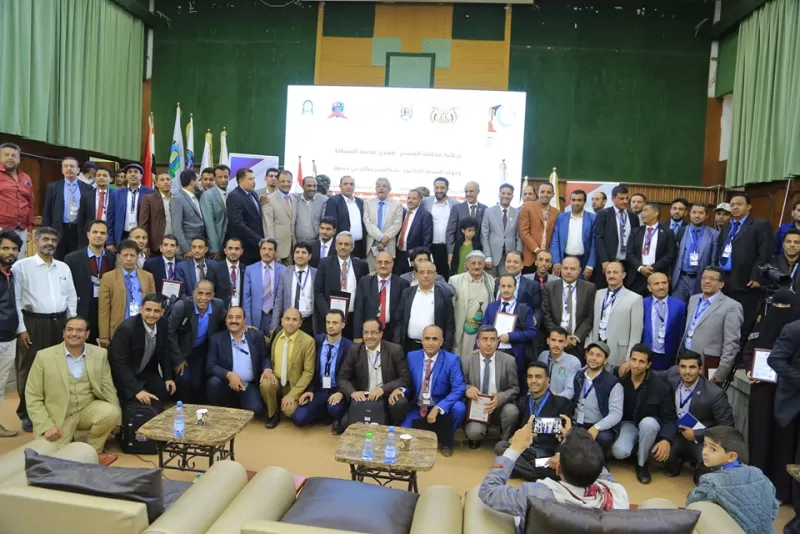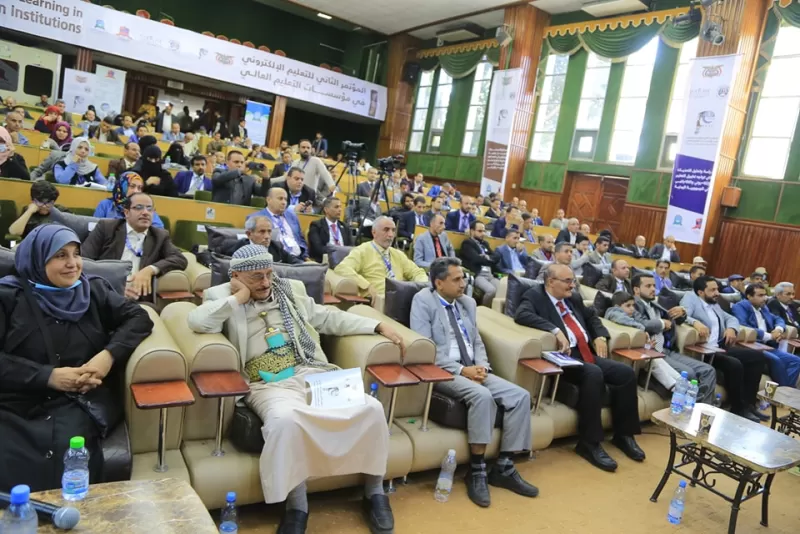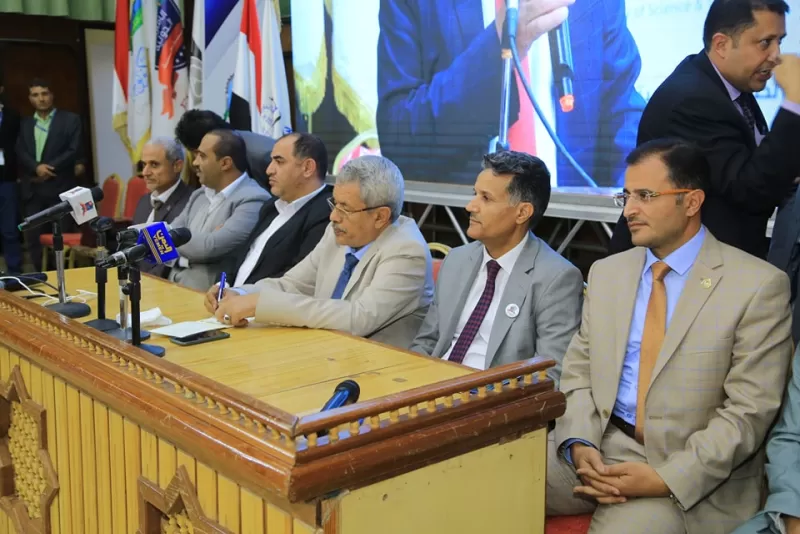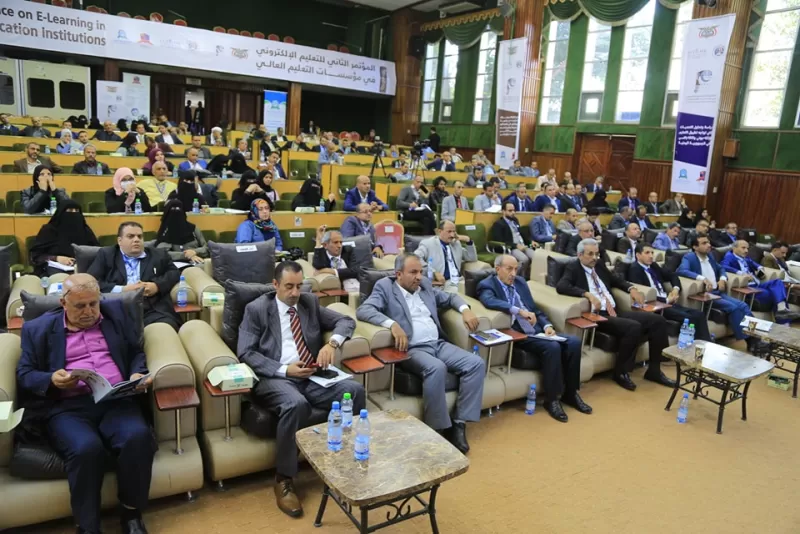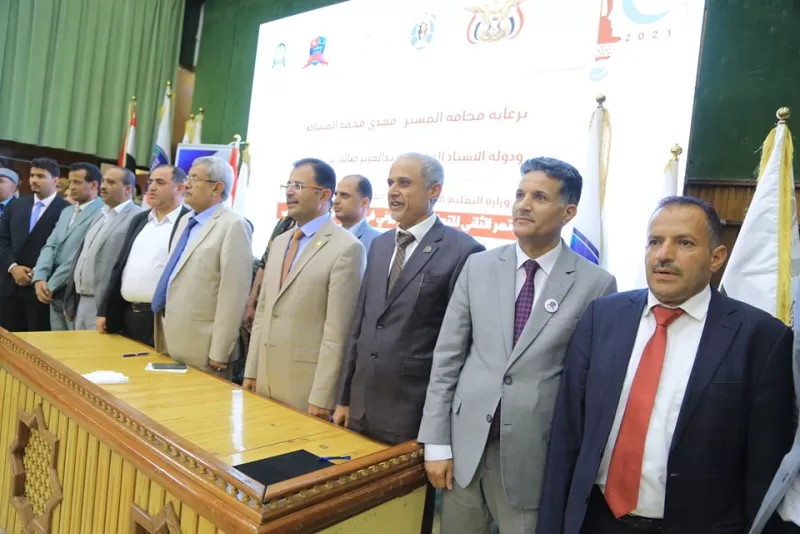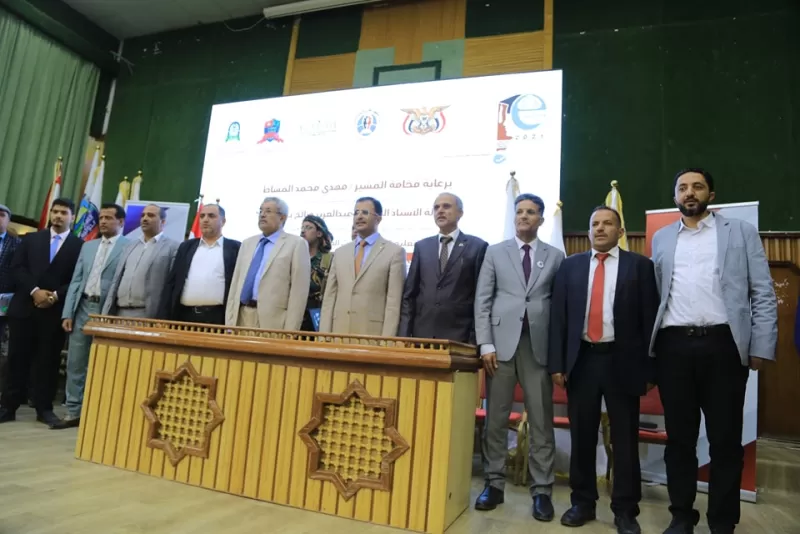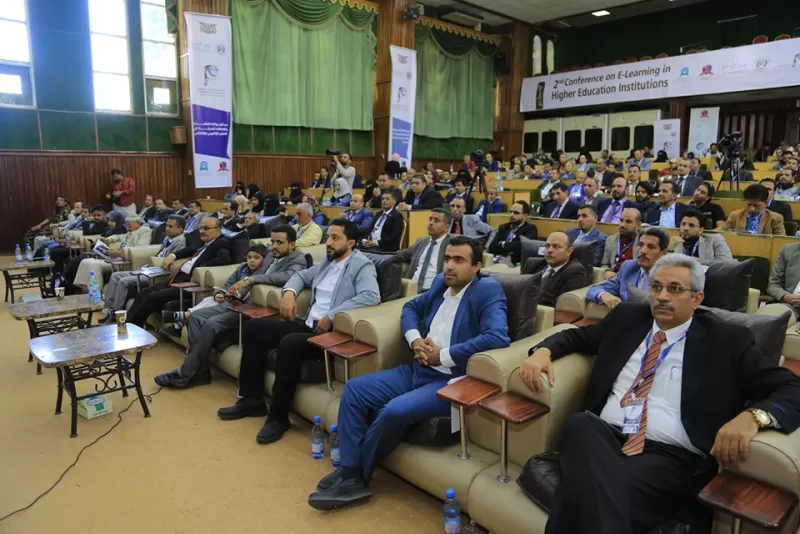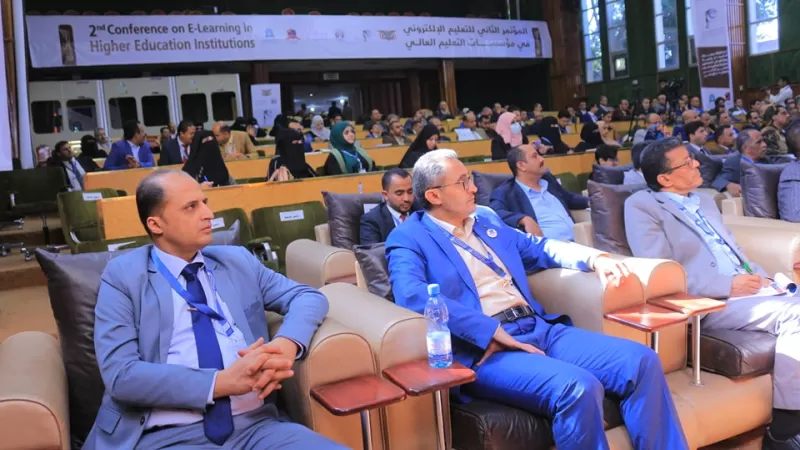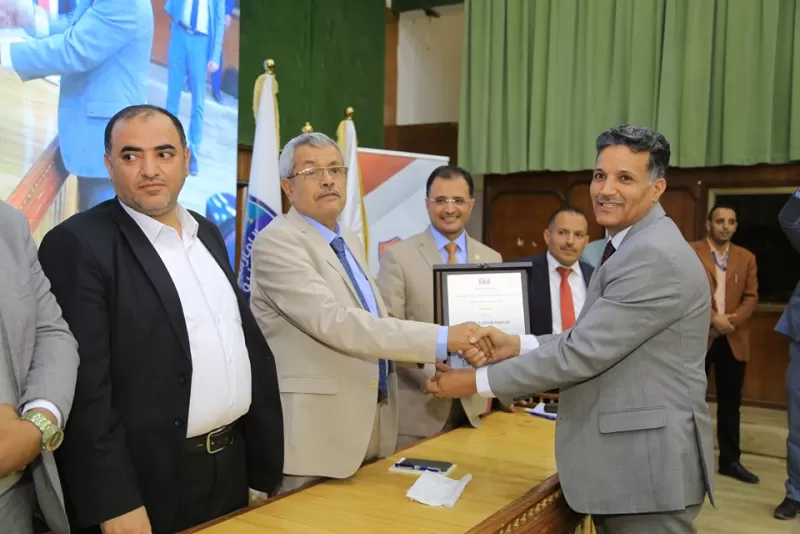Emirates International University
Modernity
Distinguish
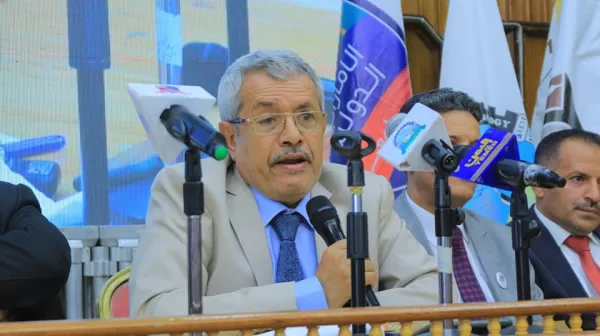
[22/November/2021] Sana'a - Saba Agency:
The second scientific conference for e-learning recommended adopting the integrated e-learning method in higher education institutions to keep pace with recent developments in education, and to meet the needs of students whose circumstances do not allow them to study within the traditional education system. At the conclusion of the conference, which was organized in two days in Sana’a by the Information Technology Center of the Ministry of Higher Education in partnership with the Emirates International University and the University of Science and Technology with local and international research participation, the participants stressed the need to apply the standards and controls of the Academic Accreditation Council on e-learning programs to maintain its quality. The conference's recommendations urged institutions of higher education to take advantage of technological developments in improving teaching and university assessment, and to turn to interactive education to train students to acquire knowledge, skills and professional responsibilities. The recommendations also emphasized the importance of establishing partnerships between higher education institutions and strategic research centers to search for future opportunities for the Fourth Industrial Revolution, and to allocate innovative and sufficient budgets and financial resources to finance research and development, especially in the field of information technologies. The participants called on the concerned authorities to expand the powers of the Information Technology Center, to include an independent institution or body, in implementation of the directives of the national vision, and to call on universities to establish specialized centers for e-learning in accordance with regulations, standards, and scientific foundations, and to create a network between them. The recommendations called for the ministry to launch the unified e-learning platform for universities, to be an interactive link between faculty members and students, and to benefit from Arab and international platforms.. Emphasizing on strengthening the role of e-learning in terms of applications, software, communication networks, devices and equipment, and attention to modern systems and databases. . She urged encouraging investment in the communications and information technology sector to improve network performance and speed of communication within and outside higher education institutions, and called on the Academic Accreditation Council to update distance education controls, and prepare blended education standards and related evidence. The recommendations focused on developing the partnership between the public and higher education and vocational sectors and the telecommunications sector, to enhance the technical capacity of educational institutions, and the work of an internal Internet network for universities to be linked as an external network with the rest of the universities through the national network (service provider). In conclusion, the Minister of Higher Education, Hussein Hazeb, congratulated the success of the conference, its results and recommendations, and worked to implement them in cooperation with the relevant authorities, to keep pace with developments in the field of e-learning. Minister Hazeb stressed the keenness to encourage electronic, integrated and distance education in universities that possess qualifications, infrastructure, laboratories and equipment to keep pace with global developments in this field.. He called on public universities to reform their conditions and apply to the Academic Accreditation Council to obtain private and public program accreditation. He announced the issuance of a decision to allow distance education at the University of Science and Technology, after ensuring that the conditions, controls and standards required in this regard are met, and not allowing the standards and controls specified for this type of education to be exceeded. In conclusion, in the presence of Minister of State Dr. Hamid Al-Mazjabi, Shura Council member Hassan Abdul Razzaq, Deputy Minister of Higher Education Dr. Ali Sharaf Al-Din, deputy ministers and heads of public and private universities, the Chairman of the Scientific Committee, Dr. Sharaf Al-Hamdi, confirmed that the conference dealt in two days with more than 25 working papers and scientific research. And he indicated that the working papers and research included "the future directions of e-learning technologies, the system of policies and legislation regulating this type of education, e-learning standards and evaluation, content production, innovation and development in the field of e-learning and virtual education, as well as the role and tasks of e-learning platforms and tools and e-learning challenges." . He pointed out that the conference, in which researchers from Yemen, Jordan, Libya, Sudan, Oman, Bahrain and Malaysia participated, aimed to enrich the aspects related to e-learning from a scientific research perspective, and to contribute to the development of controls for regulating e-learning. For his part, the President of the Emirates International University, Dr. Najeeb Al-Kumaim, confirmed that the university's participation in supporting the conference embodies the partnership with the Ministry of Higher Education to support the continuity and development of higher education. While the President of the University of Science and Technology, Dr. Adel Al-Mutawakel, stressed that holding the conference today is gaining importance in its consistency with the contents of the national vision and the directions of the revolutionary leadership, the Supreme Political Council and the Salvation Government to support the development and modernization of education. At the end of the ceremony, in the presence of the Executive Director of the Information Technology Center, Dr. Fouad Hassan Abdel Razzaq, the Minister’s advisors, Dr. Muhammad Daifallah and Mahmoud Al-Silwi, and a group of academics, researchers and interested persons from various universities, the Minister of Higher Education and his deputy were honored with the shield of the conference, and the participants, speakers and scientific committees were honored with shields and certificates discretionary.

